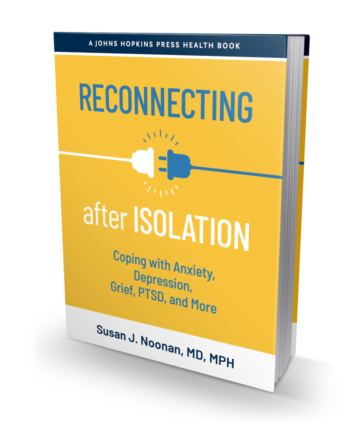A few years ago I posted a blog on how you might help someone who refuses mental health treatment (October, 2016). It seemed to resonate with many readers at the time. I am again prompted to write because someone recently asked me how to help their 19 yo son who is reluctant to seek professional care for depression. Being the parent of someone over age 18 who is free to make his own decisions is a difficult and painful position to be in. Here are a few additional thoughts.
A young man or woman of this age might benefit from attending a support group specifically for young people, run by trained peers who share common experiences, and not psychiatric staff. Those run by DBSA (Depression and Bipolar Support Alliance) or NAMI (National Alliance of Mental Illness) are highly recommended. These are national organizations with local chapters and weekly or bi-weekly meetings. In many geographic areas they have specific break out meetings for young people as well as families, those who have depression, those who have bipolar disorder, etc. The point is that his peers might encourage him to seek treatment and he might listen to them rather than you right now.
Perhaps your family member went to therapy and didn’t like the provider. Just because he did not like one therapist does not mean the next person is not a good fit for him. People are all different, as are their needs, and it takes a certain chemistry between two people to make a trusting and successful therapeutic relationship. It might be that cultural or gender differences get in the way, or that people have different interests. You can’t tell this right away; sometimes you have to work at the relationship for a few weeks or meetings before you know if it’s going to be a helpful connection to have with any one person. Encourage him to keep trying by getting referrals from other providers, your family doctor, or school counsellors. Have him interview more than one person and see who feels like the best fit.
If she believes that going to doctors is a waste of time, that they have nothing to offer her, you might mention that the doctors and therapists do believe that what they recommend will be beneficial. They would not be doing this if they didn’t believe it would be helpful to her. Mental health professionals would not waste their time. They’ve seen people in bad situations get better. So perhaps she could believe in them for knowing what they know and give then another chance.
It’s also helpful to remind your loved one of her goals in life (perhaps finishing school or a training program, completing a project, participating in a sports team, etc.) and that she cannot accomplish those goals right now, in her current condition. She has to get control of her illness first, and this will most likely require treatment. It takes work on her part, but improvement IS possible. A living example of someone who has struggled with depression and regained control of his life is always useful, if you can find such an example in your community.
Remind him that depression is a common, biologically based illness that affects many people. Share with him examples of others who have the illness, such as the “List of people with major depressive disorder” posted on Wikipedia online. While people he knows personally are more powerful examples of resilience and perseverance, this list may help him realize that it affects all people and that relative success in life IS possible. It’s Wikipedia, so take it for what it’s worth – it may not be exact. I apologize in advance if any of this information from Wikipedia has errors in it.
Examples of people on Wikipedia include: Abraham Lincoln, Winston Churchill, Ernest Hemingway, Mark Twain, Mozart, Robin Williams, John Lennon, Beyonce, Ashley Judd, Halle Berry, Ken Griffey Jr, Terry Bradshaw, JK Rowling, Lady Gaga, Billy Joel, Sheryl Crow, Alec Baldwin, Christian Bale, Amanda Beard, Kristen Bell, Jon Bon Jovi, Drew Carey, Jim Carey, Eric Clapton, Phil Collins, Louis CK, Larry David, Bob Dylan, F. Scott Fitzgerald, Donald Glover, John Goodman, Selena Gomez, Jon Hamm, Hulk Hogan, Dwayne Johnson, and many, many others.
Seeing this list shows him that improvement and functioning in the world despite having depression IS possible. Add to this list the people in your community who may not advertise their illness but have satisfaction and success in their lives.
Here’s an approach to take if he or she seems to feel hopeless, or expresses that in conversation. Hopelessness is a key symptom of depression. Begin by telling him that you understand he believes that life feels hopeless, and validate his feelings. Then ask him to allow those who love him to carry hope FOR him. So he doesn’t have to do it himself, he doesn’t necessarily have to have a lot of hope right now but knowing that you will carry hope for him is sometimes a relief. You have hope for him, and he believes in and trusts you. That may remove some of the burden he feels in having to put on a brave front. Eventually he will begin to have hope himself. This has been of help to some people.
Don’t give up trying! Keep your word and do what you say you are going to do. Be there. Deep down inside she trusts you and is counting on you to support her. Remember that thought when times are difficult and it seems as though you are not communicating well, when you feel your efforts are not appreciated or valued. They are, but your loved one may be so disrupted and irritable she cannot properly express her gratitude.
Good luck!
A version of this article was previously posted on Psychology Today.

